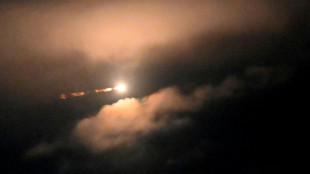

New Zealand, Phillippines sign troops deal in 'deteriorating' strategic environment
The Philippines and New Zealand signed an agreement on Wednesday allowing the deployment of troops on each other's territory, a move aimed at bolstering security in a "deteriorating" strategic environment.
The visiting forces pact is the latest in a series Manila has secured in the face of ongoing confrontations with Beijing in the South China Sea.
China has deployed navy and coast guard vessels to bar the Philippines from important reefs and islands in the strategic waterway, which Beijing claims nearly in its entirety despite an international ruling its assertions are baseless.
New Zealand Defence Minister Judith Collins said on Wednesday the deal reflected a commitment based on understanding "the risks to the international rules-based order".
"As our prime minister has said, New Zealand looks to protect and advance our interests in the Indo-Pacific, and we can only do so alongside partners," Collins said.
Both countries had "a real understanding that the strategic environment that we are operating in is deteriorating", she said.
Philippine defence chief Gilberto Teodoro said: "There are those who follow the international law and there are those who want to redefine it."
He took particular aim at the "nine-dash line" China uses to define its sweeping territorial claims.
"We need to deter this kind of unwanted behaviour," he said, adding that Manila and Wellington would work towards "military-to-military training".
The Philippines has already signed visiting forces agreements with the United States, Australia and Japan. Teodoro told the briefing a similar deal with Canada could be expected "very soon".
- Pulling its weight -
New Zealand, a country of just over five million people, has been criticised over the years for taking a softer line on China and putting its trading relationship ahead of its allies' security concerns.
However, Prime Minister Christopher Luxon unveiled a major military overhaul this month that will pour billions into missiles, cybersecurity and drones, saying it was time for New Zealand to "pull its weight".
Wellington and Sydney raised concerns in February over a lack of prior notice when the Chinese Navy conducted live-fire drills in waters between their two countries, prompting an alert to commercial airlines.
Wednesday's visiting forces agreement comes a day after Japanese Prime Minister Shigeru Ishiba pledged a deepening of security ties with the Philippines after a meeting with President Ferdinand Marcos.
The Philippines is currently taking part in three weeks of joint exercises with the United States intended to simulate a "full-scale battle scenario" as the treaty allies seek to deter Beijing's territorial ambitions.
Chinese warships, including the aircraft carrier Shandong, have been spotted in waters near the Philippines at various points during the first week of the drills.
O.P.Becker--LiLuX


